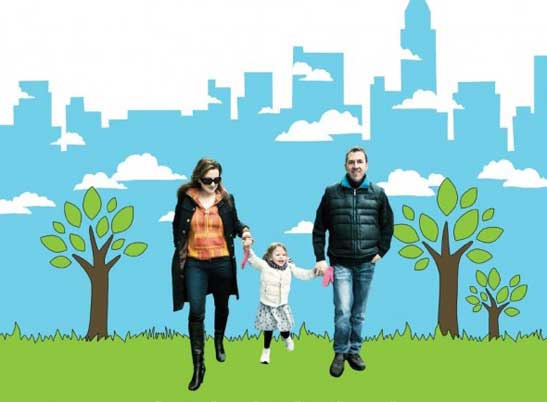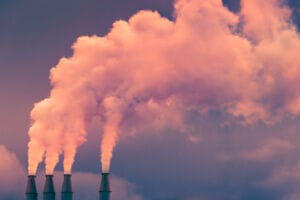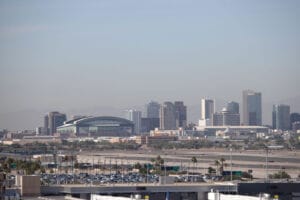Can you imagine a life without toilet paper, electricity, or any of the modern conveniences many of us consider a staple in our daily lives?
Colin Beavan — aka No Impact Man — and his family did without any of this (and more) for an entire year. During their experience, Beavan wrote a blog that later spawned a book and documentary film about what it’s like to go off the grid while living in New York City. The goal of the No Impact project was to live life in the city while causing no net environmental impact. They did this by giving up on many things i.e. electricity, toilet paper to decrease their negative impact. In order to increase their positive impact they volunteered at various environmental groups, cleaned the banks of the Hudson River and donated to charity among other things.
In an excerpt from his book: “NO IMPACT MAN: The Adventures of a Guilty Liberal Who Attempts to Save the Planet, and the Discoveries He Makes and Our Way of Life in the Process” Beavan writes:
“This book, in short, is about my attempt with my little family to live for a year causing as little negative environmental impact as possible. If what I’ve described so far sounds extreme, that’s because it’s meant to be. My intention with this book is not to advocate that, as a culture, we should all give up elevators, washing machines, and toilet paper. This is a book about a lifestyle experiment. It chronicles a year of inquiry: How truly necessary are many of the conveniences we take for granted but that, in their manufacture and use, hurt our habitat? How much of our consumption of the planet’s resources actually makes us happier and how much just keeps us chained up as wage slaves?
What would it be like to try to live a no-impact lifestyle? Is it possible? Could it catch on? Would living this way be more fun or less fun? More satisfying or less satisfying? Harder or easier? Worthwhile or senseless? Are we all doomed, or is there hope? Is individual action lived out loud really just individual action? Would the environmental costs of producing this very book undo all the good, or would the message it purveyed outweigh the damage and add to the good?
But perhaps most important, at least when it came to addressing my own despair, was I as helpless to help change the imperiled world we live in as I’d thought?”
I was able to catch a showing of the documentary at the Global Institute of Sustainability on Monday and thought the film was fantastic. It portrayed a family that went to the extreme, all in the name of Mr. Beavan’s experiment and came out of it with a truly renewed perspective on the environment. Now, the goal of Mr. Beavan’s message isn’t to ask people to go to the lengths he did, but rather bring attention to an important issue. He hopes that his family can, in a sense, lead by example and others will be inspired to do what they can to help the environment.
I was surprised to read a lot of backlash against Mr. Beavan and his No Impact experiment. He was doing a good thing, after all, why all the bad blood? Some dismissed this as a gimmick for a book deal, but I think they’re missing the bigger picture. Did the premise land him a book deal? Sure. However, after watching the documentary it’s hard not to believe the fact that Mr. Beavan and his family really are striving to do the right thing — help the environment and make a difference. According to Beavan, this change has to begin on the individual level, and only then will government implement laws that will hopefully undo the years of havoc we’ve wreaked on our planet.
Most importantly, Beavan himself admitted that the project didn’t end after their year was over, rather it had begun. His family had to decide what kind of a life they would lead, while still maintaining their principles and desire to help the environment.
They turned the electricity back on, but air conditioners, dishwashers, and freezers are still gone. They continue to eat locally-grown food, but have added previously banished coffee, olive oil and spices into their diets. Most importantly, they recognize the need for individual action and continue to take steps in helping the environment.
Beavan has also launched the No Impact Project, a nonprofit project that encourages individuals to “make choices which better their lives and lower their environmental impact through lifestyle change, community action, and participation in environmental politics” as stated on the project’s Web site at noimpactproject.org
noimpactman.typepad.com
noimpactproject.org




